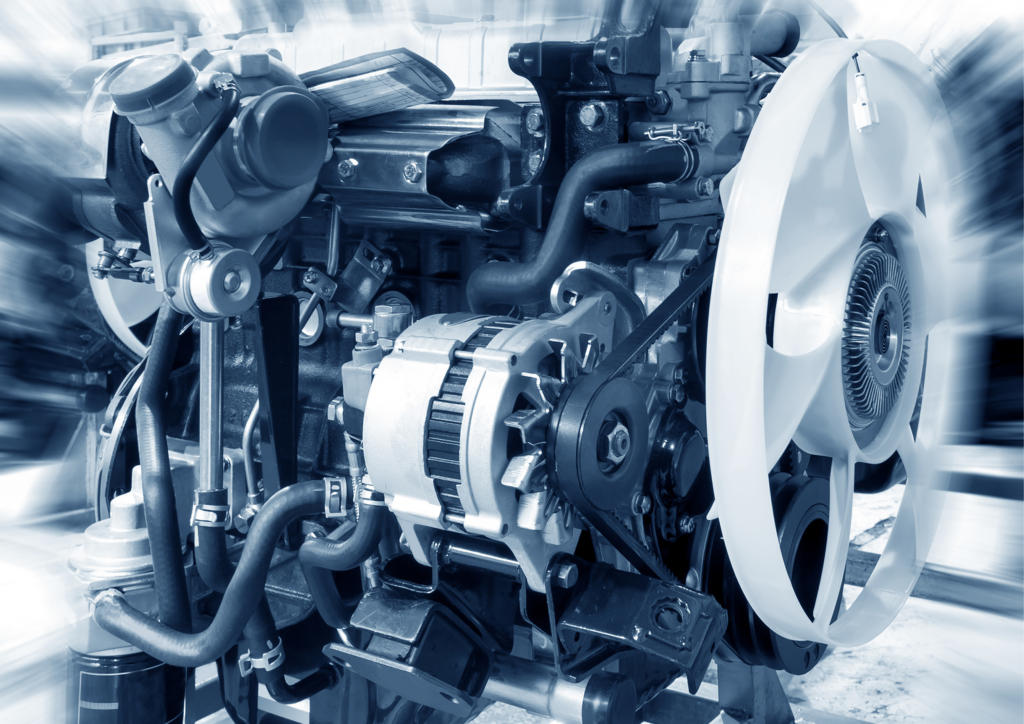Viewpoints by Laura Colmone, Experience Manager and David Lacroix, Operational Director.
After suffering the effects of the Covid-19 pandemic, the automotive sector continues to face significant changes. While the market is expected to return to pre-pandemic levels by 2023, companies must now respond to new economic and environmental challenges as well as raw materials shortages.
With 1.8 million unsold cars, overall sales fell by 11% compared to the same time, last year in 2021. China and the United States are leading the way in sales. In Europe, even though the level is historically low, the worst since 1996, new models of electric, hydrogen and connected cars are emerging.
Challenges faced
For the last ten years or so, the automotive industry has undergone unprecedented changes to adapt and optimise the balance between digitalization and environmental sustainability.
The growing demand for electric vehicles and connected cars with IS and digital information systems poses a major threat to traditional carmakers. The use of more electronic components in car production is driving technology companies to enter the market causing major disruptions. Therefore, if automobile manufacturers do not rethink their engineering process and incorporate new technologies into it, they risk disappearing.
Today, already 85% of the new cars available on the Chinese, American and European market are considered as connected. By 2025, more than 470 millions of connected cars will be in circulation in these 3 regions. In the long run, this could even transform the current business model of the automotive industry. Indeed, the value of this market would no longer be the result of the production and sell of cars, but it would be thanks to fleet management and digital services.
In addition to this digital transition, the automotive sector must respond to another major challenge: energy transition and environmental sustainability. Indeed, electric vehicles have an increasing share of the market; from January to May 2022, nearly 3 million of a 100% electrical cars were sold worldwide, compared to 1.7 million in the same period in 2021, or an increase of about 80%.
However, for the moment, the batteries of these cars remain a problem. They require the extraction of rare materials, and their recycling process is not yet well defined. Given that cars are a major contributor to air pollution and the industry uses large amounts of water and energy, it is a priority for manufactures to consider the current climate change mitigation targets and consumers’ greener preferences.
From now on, this sector is already trying to find new solutions. Among them, we can find the implementation of a more circular production. For example, the production process can integrate more recycled material. In that case, different components from old cars ready for scrapping, such as metals, glass, plastics, or various textiles. can be separated and processed. The aim of all these measures is to keep the ecological footprint of the production process to a minimum.
The global situation of the automotive industry
Today, the automotive sector is facing cyclical challenges and must adapt to repeated crises. The pandemic has had a particular impact on the global semiconductor market, limiting the production of automotives. Globally, 7.7 million vehicles were delayed in 2021, resulting in a loss of €180 billion in revenue. The current war between Russia and Ukraine is also having a severe impact on the automobile industry – both in terms of production and sales as they are major suppliers of materials such as neon, palladium or C4F6, which are essential for the production of electronic chips. Together, they supply between 45 and 54% of the production of semiconductor quality.
Moreover, the rising inflation is leading to less consumption which together with these shortages has led car manufacturers to cut production and sales forecasts. The increase in the price of petrol is also having an impact. Households are more careful with their savings and will limit their car journeys to a minimum.
Resetting for growth
The automotive industry is currently undergoing a process of change and will continue to evolve in the coming years. It is important to accompany this sector in this digital and ecological transition. And this is where Amaris Consulting can step thanks to our expert positioning in data science, engineering, or management. We have already carried out many projects on this subject, for example in the Battery Management System (BMS) area, where we are involved in design and the implementation of software for our clients, or autonomous driving.
To keep up with these changes and the future of mobility, carmakers must adopt an innovation-driven approach and excel in digitalization and environmental sustainability. This is the challenge that talents will have to face: continue to innovate in this sector in full transformation, while taking into account the global and environmental issues that involves.
At Amaris Consulting we have helped many of our clients to overcome challenges with, among others, our expertise in Battery Management System and the design and implementation of software. Discover how our IS & Digital and Engineering solutions can help you.


